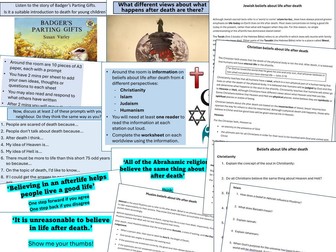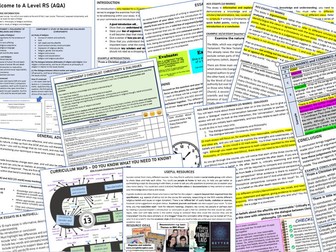Worldviews: where has religion come from? KS3 Year 7 (development/origins of religion)
Learning Objectives:
To consider what ‘worldviews’ are and to evaluate whether they are important
To explore the right to freedom of belief and religion as a Human Right
To put into context where the world’s religions have come from
To be introduced to a variety of key words, facts and figures related to these religions
Students start by watching a video on worldviews and use it to feedback their thoughts on what they think the term means, why worldviews may be important and what factors influence someone’s worldview. After identifying that religion plays a key role in shaping some people’s worldviews, they then complete a timeline activity to introduce them to a brief development of religion over time, including the world’s 6 main religions. Students use the information from this activity to answer questions that will introduce them to some key words, facts and figures about these main religions (answers included). The lesson finishes with students responding to the prompt: ‘Religions are irrelevant in today’s world.’ Extension: students to create their own set of ‘worldview glasses’ to show their own worldview
Resources included: PPT, lesson plan, map and timeline sheets

